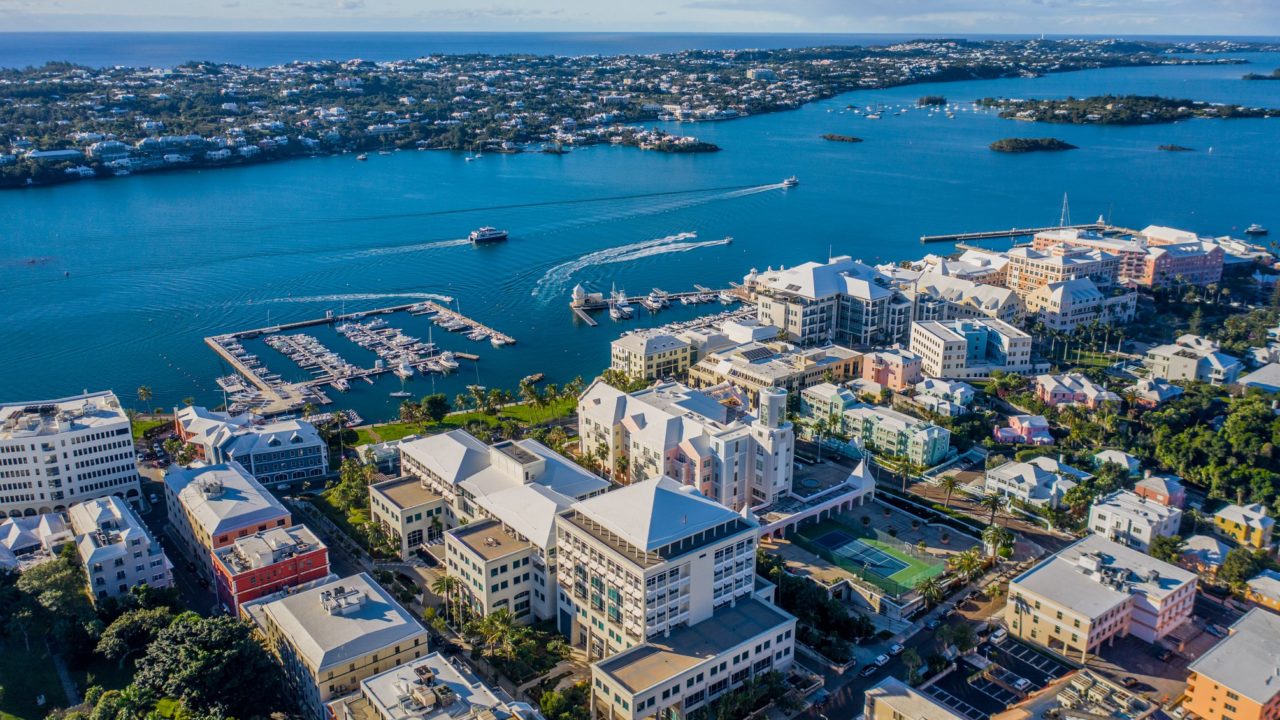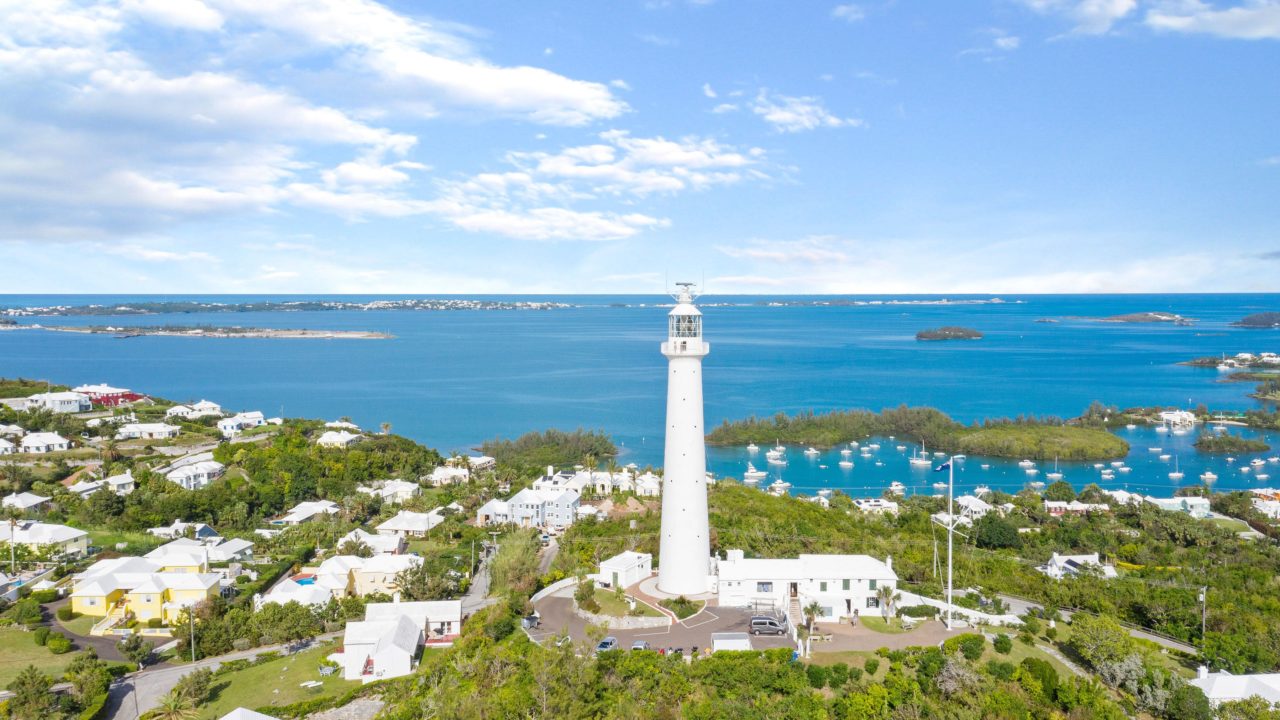Social Governance in Bermuda
THE VALUE OF SOCIALLY RESPONSIBLE INVESTING
Bermuda knows the best way to grow business is to invest in the people who make the island’s business ecosystem thrive. This community brings strength and innovation, which is making Bermuda better for everyone.
Bermuda is known for its diverse blend of local cultures as well as its global ties. With over 400 years of international relationships with the UK, US, Caribbean, Azores, Philippines and Native American tribes, Bermuda’s worldwide networks are among its most powerful strengths. As a small island, caring for the community is paramount. Social programmes and forward-thinking governance support the people who make this island everything it is – and who have supported the growth of businesses large and small. Discover what it means to be part of this community.
What is ESG?
Environmental, Social and Governance (ESG) investing is a relatively new tool to measure the ethical impact of business.
Social programmes and governance are key components of Environmental, Social and Governance (ESG) investing, which aims to guide investments toward sustainability in all senses of the word – ethical treatment of workers, renewable energy, environmental conservation, responsible governance, community health and more. BDA has put together the ESG hub as a convenient place to explore environmental, social and governance factors in Bermuda.
Social Pillars
Leading the Social Charge
Ask what it means to be Bermudian and you’ll get unanticipated answers. It’s the accent that borrows from British, American and Caribbean dialects. It’s the little treasures you’ll find all around you, from pink sand beaches to the call of the resilient Cahow. It’s the strength of the people who made the island the flourishing center of business it is today.
Binding Bermuda’s vibrant tapestry together is a social sense of doing what’s right. Explore the social policies that ensure fair employee compensation and benefits, opportunities for employee training and development, progressive workplace policies and priorities, and the financial support of charitable causes in Bermuda.
Responding to the Covid-19 Crisis
Bermuda provided benefits totaling $5.1 million to hospitality workers and locals affected by shutdowns.
When Covid-19 threatened the health and safety of the world, Bermuda responded rapidly. Between 2020 and 2021, Bermuda provided benefits totaling $5.1 million to hospitality workers and locals affected by shutdowns, bringing much-needed relief during the pandemic. A swift government response also kept Covid-19 cases well below world-wide averages. From the start of the outbreak up until 2022, there were less than 7,000 confirmed cases and over 100,000 vaccine doses administered.
Protecting the Workforce
Bermuda was focused on creating positive social impacts well before the pandemic.
In response to the mental health needs of Bermuda’s workforce, the Employee Assistance Programme (EAP) of Bermuda was founded in 1987 as a non-profit consortium of public and private sector employers. Their programmes include grief support groups, conflict management training and resources for managing work-related stress. All of these programmes are designed to benefit workers for a healthier workforce.
The island is also committed to making life better for everyone, especially the most vulnerable populations. Ageing and Disabilities Services, Charities, Department of Child and Family Services – there are many organizations working toward this end.
The Human Rights Commission takes human rights policies from written words to real life actions.
One of the most important governmental agencies upholding human rights on the island of Bermuda is the Human Rights Commission. This commission was created to uphold Bermuda’s Human Rights Act of 1981, an act that was created to “provide Bermuda with a more modern and evolved anti-discrimination framework.”
The commission provides education on Bermuda’s human rights legislation, consultations on how to implement human rights practices, assistance with policy writing, guidelines, collaborations and partnerships with businesses. The commission also supports individuals with complaints or queries.
Bermuda-based charities and organizations that provide human services can apply for accreditation or certification.
With all the organizations that provide human services, Bermuda recognised the importance of providing meaningful accreditation to leading organizations. That lead to the birth of the Bermuda National Standards Committee (BNSC). Established as a local, independent not-for-profit in 2005, BNSC accredits human service organizations and certifies other Bermuda organizations and programmes. With the creation of BNSC, Bermuda was the first country to formally replicate the US-based Council on Accreditation – which is widely recognised as one of the best human service accrediting organizations of its kind.
Accreditation or certification from BNSC shows that an organization or charity provides high-quality service, ethically, with better client outcomes and follows the highest standards of care.
Growing Bermuda’s Talent
We’re an international hub for business brainpower while at the same time uplifting our young talent.
Bermuda’s progressive initiatives wouldn’t be what they are without the island’s well-deserved local pride. If you’re curious about how we support local talent growth, look no further than the Association of Bermuda International Companies (ABIC), the Association of Bermuda Insurers and Reinsurers (ABIR) and the Bermuda International Long Term Insurers and Reinsurers (BILTIR). These are just a few of the companies playing a role in educating Bermuda’s up-and-coming talent through scholarships, community outreach and various educational initiatives. For a more in-depth look at how we invest in our workforce, check out first-hand experiences here.
Governance Pillars
Good Governance for All
If you’ve ever wondered how an island with less land mass than most major cities became an international financial powerhouse, we have a secret to share: collaboration. Bermuda’s success is founded on the interconnection of three main components – government, industry and independent regulators. Our governance decisions are driven by what’s best for the people while actively engaging industry voices and independent regulators, balancing business sense with transparency.
When it comes to implementing policies, Bermuda has adopted globally recognised standards of compliance, regulation, transparency and infrastructure. Explore how we set the standard for success.
Reporting & Regulation
Bermuda exchanges tax information with members of the G20, EU and other OECD countries.
Bermuda is a jurisdiction committed to sound regulation, high standards of compliance, transparency and international cooperation. Currently, Bermuda has 41 bilateral Tax Information Exchange Agreements (TIAs) based on OECD’S internationally agreed standards and more than 125 multilateral treaty partners.
In fact, Bermuda adopted OECD’s Common Reporting Standard as an early adopter jurisdiction and Bermuda became the 33rd signatory of the Multilateral Competent Authority Agreement for Country-by-Country reporting. Along with these steps, Bermuda entered a model 2 intergovernmental agreement with the US to facilitate the Foreign Account Tax Compliance Act (FATCA).
Bermuda is also at the forefront of beneficial ownership issues. The island has maintained an accessible and accurate registry of the beneficial owners of all Bermuda companies since the end of WWII. The information is available to legitimate authorities enquiring after their citizens.
Safety, Stability & Standards
Key international partnerships make Bermuda a safe and stable landscape for investments.
The above agreements not only make Bermuda a safe and stable landscape for investments, but they also strengthen the island’s international partnerships. Taking that sense of collaboration even further is Bermuda’s fight against money laundering and the financing of terrorism. Bermuda implemented the Caribbean Financial Action Task Force (CFATF) and the Mutual Evaluation Report (MER), both of which are approved by the Financial Action Task Force (FATF) – the global standards setting body. The National Anti-Money Laundering Committee (NAMLC) is another key protection against money laundering and terrorist financing. The committee is comprised of multiple boards including the realtors association, bar association, BMA, Casino Commission and others.
Supporting all the above work is the Bermuda chapter of the Institute of Directors (IoD). The IoD is the UK’s longest-running organization for professional leaders and the Bermuda chapter has been fostering professionalism and leadership among boards of directors since 1991.
Social Capital in Bermuda
Highlights
Bermuda’s social and governance efforts are inclusive – from education for all to breaking down social barriers – and the island has a long history of forward-thinking government. See some of the work that makes us proud.
- Bermuda is known for its 99% literacy rate. The island has compulsory education for children aged 5-16.
- Bermuda has an Ombudsman’s office for handling grievances over official actions and ensuring equal opportunities.
- The island had its first Black Premier in 1971 (Sir Edward Richards) and its first female Premier in 1997 (Dame Pamela F. Gordon). See more examples here.
- In 2013, Bermuda ranked 5th in parliament seats held by women.
More on ESG



We’d like to tell you more





